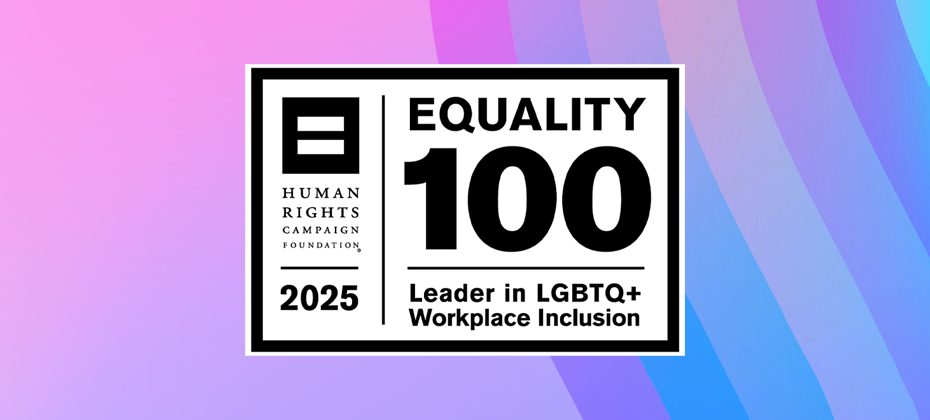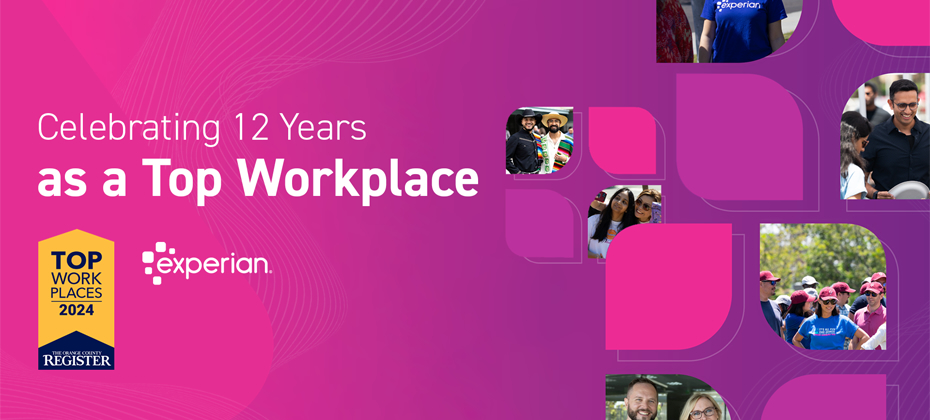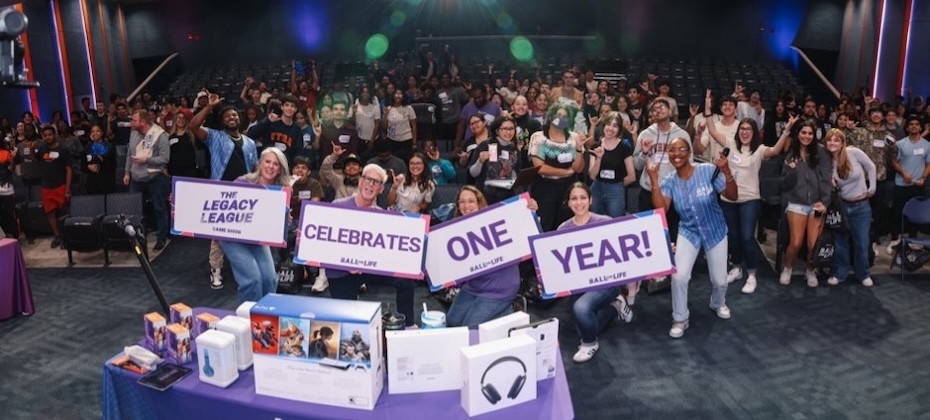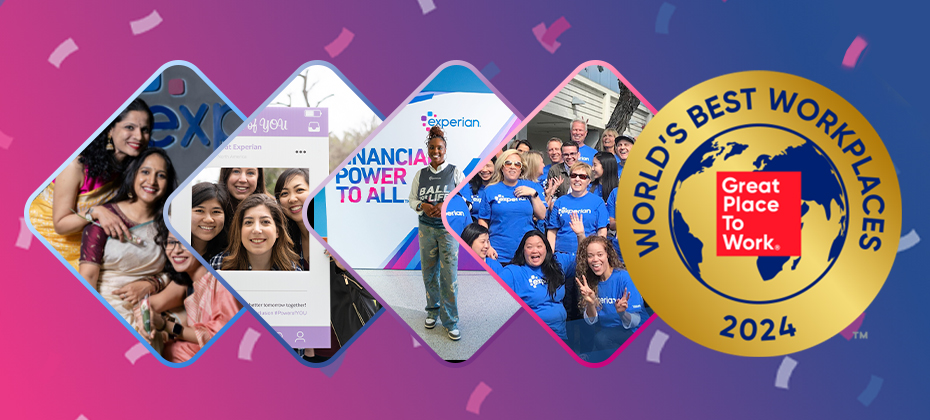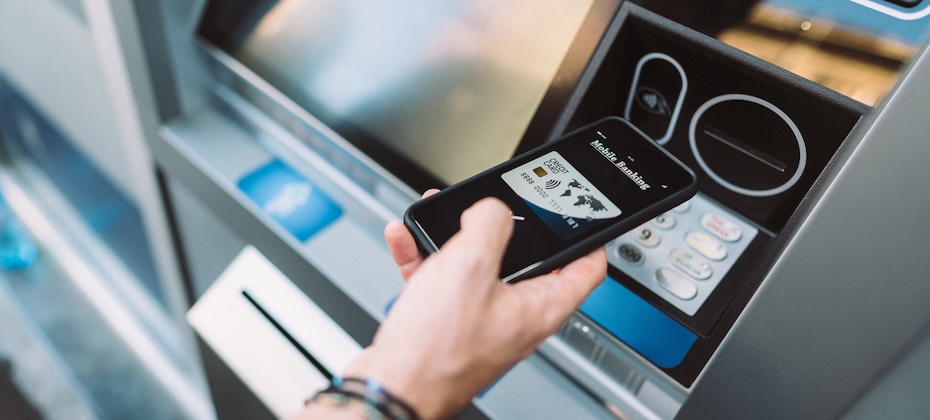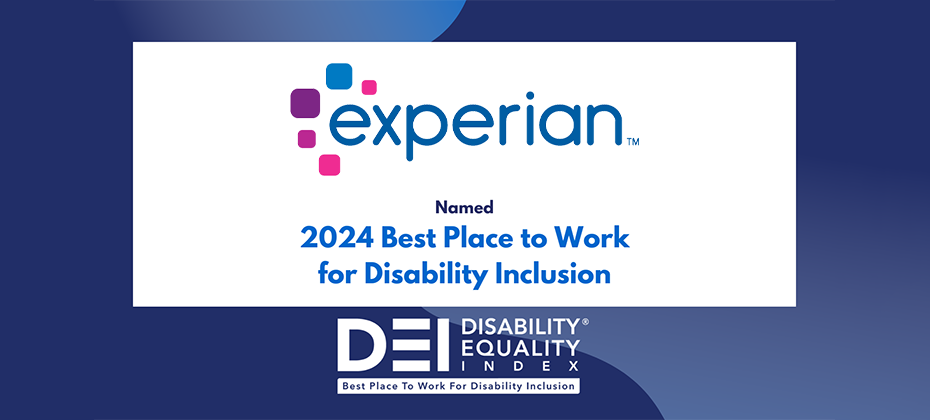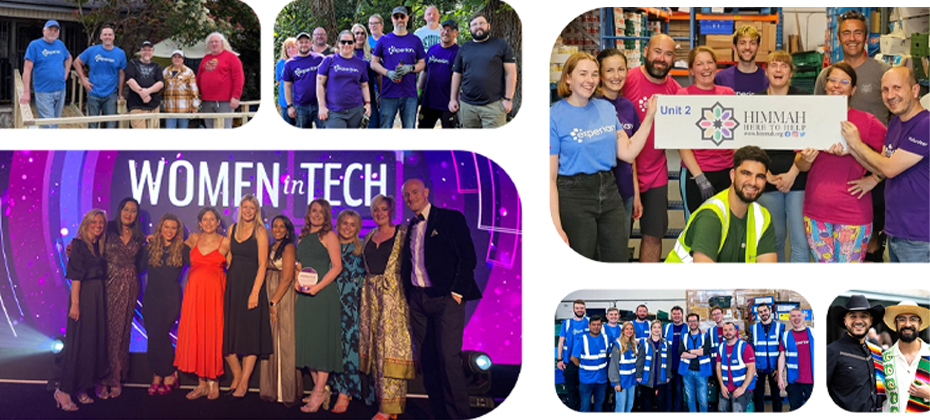At A Glance
At a Glance When an unknown printer took a galley of type and scrambled it to make a type 2ince the 1500s, when an unknown printer took a galley of type and scrambled it to make a type specimen book. It has survived not only five centuries, but also the leap into electronic typesetting, remaining essentially unchanged. It was popularised in the 1960s with the release ince the 1500s, when an unknown printer took a galley of type and scrambled it to make a type specimen book. It has survived not only five centuries, but also the leap into electronic typesetting, remaining essentially unchanged. It was popularised in the 1960s with the releaseince the 1500s, when an unknown printer took a galley of type and scrambled it to make a type specimen book. It has survived not only five centuries, but also the leap into electronic typesetting, remaining essentially unchanged. It was popularised in the 1960s with the releaseince the 1500s, when an unknown printer took a galley of type and scrambled it to make a type specimen book. It has survived not only five centuries, but also the leap into electronic typesetting, remaining essentially unchanged. It was popularised in the 1960s with the releaseince the 1500s, when an unknown printer took a galley of type and scrambled it to make a type specimen book. It has survived not only five centuries, but also the leap into electronic typesetting, remaining essentially unchanged. It was popularised in the 1960s with the release
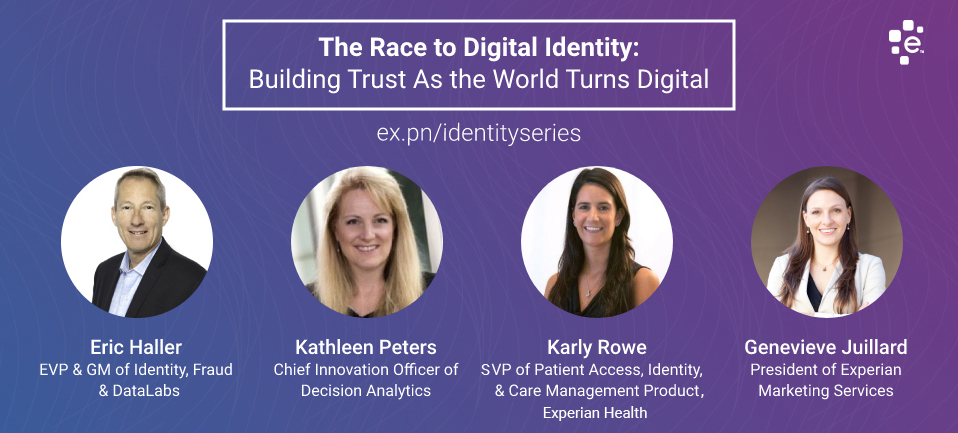
The way we identify ourselves is ever-changing. The growth of the digital world has played a huge role in this. Identity used to be based on basic information: phone numbers, driver’s license information, information in a telephone book, etc. Now, as our world is moving more towards online preferences due to the COVID-19 pandemic, and people are identified by cookies, website preferences, usernames, and other identifying factors on their devices. As identity races towards a more digital perspective, we must be wary of how we can use this information to provide better customer experiences and how it can easily be stolen and taken advantage of. Experian held a special series as part of our DataTalk podcast that focused on the importance of identity and how Experian is utilizing identity throughout of different businesses. The series also looked at how Experian is constantly innovating to ensure our technology and data are being used to create the greatest benefits for our clients and their customers. Every week, Experian’s Director of Social Media Mike Delgado and Experian’s Social Media Specialist Destiny White are joined by data science leaders around the world for the #DataTalk podcast. Why authentication is important The challenge companies are facing is how to digitally identify individuals while maintaining a positive customer experience. They need to rely on new technologies including data, biometric, identity graphs and AI. Eric Haller, Experian’s EVP & GM of Identity, Fraud & DataLabs, speaks on these technologies as a guest on an episode of DataTalk. Businesses need to be able to separate real consumers from the bad guys and authenticate that they are who they say they are. Technology allows business to add secure measures that proves someone’s identity without causing too much friction. For instance, looking at information such as timing and mouse movement in an IP address will help quickly differentiate between a bot and a human. These methods are extremely important in protecting users in their e-commerce journey, something many individuals are utilizing more than ever since the COVID-19 pandemic. Being able to authenticate who someone is helps detect suspicious activity and differentiate between a fraud and a genuine identity, eventually protecting consumers from stolen information and the destroying of credit as well as the ability to take out loans. Using a layered approach to verify identities Kathleen Peters, Experian’s Chief Innovation Officer of Decision Analytics in North America, discusses in her episode of DataTalk how Experian helps protect consumers and businesses from fraud. She explains that identity is dynamic and the information that makes us who we are is always changing. In the past, people were identified by PII (Personally Identifiable Information). Now, we rely on information such as usernames and passwords, cookies, websites visited, and online preferences to create one’s identity. Due to this shift, Peters highlights the importance for businesses to build trust with customers. Because fraudsters have more access to credentials, businesses need to put the right advanced analytics and technology in place to validate and protect identities. Fraudsters are motivated and organized, therefore businesses need to use technology to stay one step ahead. The best thing businesses can do is to implement a layered approach so that they can have the right tools for the right time and apply the right level of authentication. Since our digital-first world is here to stay, businesses must ensure that they have the right tools in place to be agile in how they continually adapt and interact with consumers who are open to more practical means of security. How identity plays a role in healthcare Once trust is established and technologies that assist in authentication are utilized, many industries could benefit such as the healthcare industry. This industry has been under attack during the COVID-19 pandemic and it is important more than ever to avoid making identification mistakes. Karly Rowe, SVP of Patient Access, Identity, and Care Management Product at Experian Health, explains as a guest on DataTalk that data and technologies from Experian have been used to identify patients more accurate than ever, schedule appointments easily and even assist in contact tracing of COVID-19. This is done by using powerful data to fill in information on patients in order to authenticate them as well as find and contact them regarding any exposure to this virus. What marketers and advertisers can do with data and identity On top of contributing to the healthcare industry, Experian has also been using data and technology in the marketing industry. Data, analytics, tools and software are being provided to marketers and advertisers to deliver relevant messages to customers across their most preferred digital channels. Genevieve Julliard, President of Experian Marketing Services, explains in her DataTalk episode how identity is becoming more important than ever with the elimination of third-party cookies. Experian is embracing diversification of new identifiers across the information ecosystem to combine offline and online identity and data assets. With this approach, Experian is able to assist marketers by providing them with a clearer view of their customers across the buying journey and seamlessly deliver relevant content across all digital devices. No matter where the digital world takes us and what it means for identity, Experian is always embracing technology in order to keep up with the needs of its consumers. We use data and the most advanced technologies to confirm individuals, which makes us a leader in identity verification.

Every day at Experian, we are investing in new technologies, talented employees and innovation to help all of our clients maximize every opportunity we have to offer. We are honored the work performed under Eric Haller in our DataLabs received the San Diego Top Tech Awards of 2021. The awards honor technology executives who truly stand out by innovating. In 2010, Experian DataLabs was established to develop and drive creation of innovative products generated from breakthrough experimentation leveraging artificial intelligence, machine learning, advanced analytics and data assets from a variety of sources across Experian’s businesses in 37 countries. Eric originally pitched the idea of DataLabs and received funding for 8 people to begin the first lab in San Diego. Since then, Experian DataLabs has expanded its labs to London, Sao Paulo and Singapore. New products developed in the labs cover mobile, payments, consumer & commercial credit, fraud, targeted marketing & healthcare. During the last year and a half, Eric and his team continue to develop offerings and create new technologies to support the community. In May 2020, in conjunction with the company’s healthcare business, Experian DataLabs developed a free interactive heat map of geographic populations at-risk of being most susceptible to developing severe cases of COVID-19. The Experian COVID-19 Outlook and Response Evaluator (CORE) tool is guiding healthcare organizations and government agencies with planning for the “new normal” and COVID-19 recovery. In addition, Experian DataLabs develop other important initiatives such as the Covid Radar in Brazil to help people, small businesses and governments. Produced in collaboration with 50 organizations, including the United Nations, Amazon, SAP and the University of Sao Paulo, COVID Radar helps the coalition track where supplies are needed most. The coalition delivered tools, equipment, PPE and other supplies to Brazil’s most vulnerable zones. The second part of the initiative focused on aggregating and analyzing the data to create forecasting models that allowed researchers to track various key indicators that has helped dictate what officials should do with lockdowns and provide data around ICU beds and assess what the demand is. As part of Experian’s culture of innovation, Eric inspires his team to innovate due to his inclusive nature, openness, and willingness to listen to new ideas. The AI and revolutionary technology that Experian DataLabs is utilizing is enabling the company to continuously fuel new projects in its pipeline and turn ideas like the COVID Radar and the CORE heat map into a reality faster than ever before.

Today the UK Government’s Department for Culture, Media and Sport (DCMS) launched its consultation into the new data strategy for the UK. The consultation lays out an ambitious approach to protect consumers and deliver positive change in the UK. We welcome the announcement and share its vision for a thriving, innovative digital Britain, one where people feel confident that their data is looked after and know that their privacy is protected. We’ve always believed that data has the power to help improve lives, businesses and economies both in the UK and around the world. Over the last 18 months data-driven services have helped people manage their money during unprecedented economic and financial uncertainties; helped small businesses connect with their customers; and supported charities, the NHS and local Government in deploying resources and support to those who need it the most. Now, data can help rebuild the economy, nurture the green shoots of future success, help people take control of their financial lives, and position the UK as a global leader in consumer protection and technological innovation. We look forward to engaging with the consultation process, and working with stakeholders across the ecosystem to help shape that future vision. You can find the full consultation document here and this morning’s press announcement from the Government here.

We believe every individual deserves the opportunity to reach their fullest financial potential through fair and affordable access to credit. While leveraging data, analytics and technology are key components of this, we must also ensure consumers understand how credit works and the ways it can be used as a financial tool throughout their lifetimes. This notion is the impetus behind our annual State of Credit report. Now in its twelfth year, this report takes a close look at how consumers are managing their credit histories to educate them about the factors influencing their financial health. This year’s report shows the average credit score has climbed to 695 – the highest point in more than 13 years. Many consumers were managing credit well before the pandemic’s arrival and the accommodations afforded by the Coronavirus Aid, Relief and Economic Security (CARES) Act may have helped consumers protect their financial health. At the same time, stay-at-home orders and record savings levels may have contributed to fewer missed payments, lower credit utilization rates and lower debt. While these findings are positive, we recognize they do not tell the full story. There are tens of millions of consumers who lack fair access to credit because of a limited credit history. Low-income consumers and communities of color are disproportionately credit invisible, preventing them from obtaining low-cost, traditional financial services. There is significantly more work to do to ensure all consumers have fair access to credit. We are committed to working with lenders, regulators, businesses, consumers and partners to eliminate credit invisibility and improve financial equity and access. Our meaningful partnership with Operation HOPE, the largest financial literacy nonprofit in the U.S., is one example of this commitment brought to life. Operation HOPE has goals that align with ours: to uplift disenfranchised youth and adults from poverty to thriving in a credit ecosystem. Together with Operation Hope, we are making a tangible difference in financial inclusion by helping consumers raise their credit scores through financial coaching, education and tools like Experian Boost. As part of this year’s State of Credit report, we also helped introduce Operation HOPE’s new HOPE Financial Wellness Index. This new tool will be a valuable resource for the Hope Research Institute who plans to leverage it to identify the communities most in need of financial literacy programs. “While consumers on average are managing their credit histories well, we know there are many communities in critical need of more financial education and resources,” said John Hope Bryant, Operation HOPE founder and CEO. “By helping people raise their credit scores, we are empowering them to take advantage of one of our nation’s most democratic tools. From housing and employment to healthcare and education, credit worthiness can be leveraged to improve our overall quality of life. We’re committed to using the HOPE Financial Wellness Index as a force for good in the communities we serve.” Through our investments in expanded data, technology, advanced analytics and new innovations, we will continue to help lenders identify consumers who are excluded from the credit ecosystem, but who can fulfill their financial obligations and pay responsibly. At the same time, we will continue to take strides that empower consumers to take control of their financial lives. For additional free educational resources and more information about this year’s State of Credit report, I encourage you to visit the links below. State of Credit report findings: https://www.experian.com/blogs/insights/2021/09/state-of-credit-2021 Join Experian’s weekly #CreditChat hosted by @Experian on Twitter with financial experts every Wednesday. Bilingual and Spanish speakers are also invited to join Experian’s monthly #ChatDeCrédito hosted on Twitter at 3 p.m. Eastern time beginning September 16. The Ask Experian blog includes answers to common questions, advice and education about credit Positive telecom, utility and streaming service payments can be added to your Experian credit report by visiting experian.com/boost Additional resources available at https://www.experian.com/consumereducation

The summer months in Italy often provide us with a short time to take a break and recharge our batteries as we head into the second half of Experian’s financial year. Yet, there is still the opportunity to move important projects further forward. In July, Chief Operating Officer of Experian EMEA Marco Benvenuto announced we had agreed to partnerships with two non-profit organisations as part of our United for Financial Health programme. MircoLab and AMS both have goals that align with ours in working to reduce financial exclusion. Today, I can provide you with more details about our partnership and how we will help groups of people who find it hard to access fair and affordable credit because they lack relevant financial data. These credit “invisibles” can often come from vulnerable groups such as NEETs (Not in Employment, Education or Training), foreign caregivers and female victims of violence. The Covid-19 pandemic has been a challenge for us all, not least the people in these groups. Working with our partners, the IncludiMi initiative aims to create a new credit assessment based on data that can contribute to a more inclusive measure once analysed. We will also strengthen the skills of the people involved by offering financial education and mentoring them to become economically independent. At the heart of the new programme is the planned IncludiMi app, which will allow credit “invisibles”, including the unbanked, to have their financial health estimated by reviewing non-traditional data. People will use the app to create and understand their personal and family’s budgets while following tips and suggestions from the financial education sessions led by experts at our partners. We are excited about the potential this partnership – and the United for Financial Health programme overall – has to improve the lives of so many people by tackling financial exclusion. I look forward to providing you with further updates on our progress in the coming months.

When it comes to access to credit, we know that it’s not equal. There are barriers some consumers face, and that negatively affects how they can spend, save and borrow money. We have a responsibility to find and facilitate solutions. Financial inclusion is a core commitment for us. That’s why we are excited to launch a first-of-its-kind program called Inclusion Forward – Experian Empowering Opportunities™. This initiative harnesses Experian’s data, analytics and technology that can help clients create and provide more affordable credit access. Additionally, Inclusion Forward™ will provide ongoing resources to help consumers better understand their credit health, particularly in diverse communities. Inclusion Forward™ will focus on three key areas: homeownership, small business entrepreneurship and financial education. It can help companies achieve their diversity, equity and inclusion goals, but most importantly, it will help consumers achieve their life goals. Closing the wealth gap is key in racial equity efforts. By unlocking the power of Experian data, clients can better understand the financial challenges consumers from diverse backgrounds may face. This can lead to creating solutions and education for all consumers. We look forward to sharing more about Inclusion Forward™ and how this program is making a difference in underserved communities. To learn more about Experian’s commitment to diversity and inclusion, click here.

Experian works hard at having a workplace culture where everyone feels a sense of belonging. We’re constantly evolving and improving, and proud to share several recent acknowledgements that we’re on the right track. We have a robust multi-generational employee base, and know that the diversity of perspectives and experience spark innovations that lead to financial inclusion for all. Millennials make up the largest portion of our workforce and we’re thrilled to be named a Fortune Best Workplace for Millennials. Millennials want to work for organizations that offer fair pay and meaning, inclusive benefits beyond parenthood, gender equity, flexibility and safe spaces, according to Great Place to Work (GPTW). Employee comments to a GPTW survey indicate our team believes we are doing well: “One question you ask is do we hire people who fit in… No, we don't always – which is why we can innovate and create change – if everyone agrees on every approach, we wouldn't be nearly as successful as we are. That's one thing that makes it a great place to work – our diversity of thought and approach to problems.” Gender equity has been a focus of ours, from recruiting to talent development. Almost half of our new hires, current employees and promoted talent identify as women. Further demonstrating our commitment to diversity and inclusion, former Experian North American CEO Craig Boundy is ranked the #12 Best CEO for Women 2021 by Comparably. This ranking is based on 10 million ratings across 60,000 companies, Every CEO on the list is in the Top 5% of all CEOs rated by female employees. Experian also earned several other awards from Comparably: Best HR Teams of 2021 Best Company Outlook of 2021 Best Places to Work in Los Angeles 2021 Top 10 for Career Growth “I've worked for a ton of different technology companies and have never seen such a strong leadership team nor seen a company invest so much in their employee's future!” (quote from GPTW survey) “Opportunity to grow and move around various lines of business through your career within Experian – allows you to continue to challenge yourself and grow without leaving the organization.” (quote from GPTW survey) Comparably’s Annual Best Places to Work Awards rely solely on the input of employees, which makes these honors especially meaningful. We appreciate their feedback and their contributions every day. Check out our 2020 Power of YOU report to learn more about our coworkers, leadership and how we serve our communities.

There are times in most of our lives where we can't get access to the financial system in a way that we want. Be it for a mortgage, a car, or a business loan. We've all experienced the frustration when you feel you're on the outside of the system and you can’t do the things you want for yourself or your family. At Experian, it's our job to change that. We want to make sure everybody is included and has access to fair and affordable financial products. Financial inclusion is fundamental to our business. With our focus on increasing access to financial services, improving financial literacy and confidence, and helping people manage their financial lives; we help power people and businesses to create their future. In fact, the United Nations includes access to financial services, such as credit and microfinance, among its Sustainable Development Goals. Access to affordable credit opens the door to opportunities for people to transform their lives – from homes and healthcare to education and entrepreneurship. This has never been more important than it is today. Creating a Campaign to Drive Financial Health Worldwide As the pandemic took hold in 2020, we stepped in with data and analytics to support governments, health services and national emergency response efforts through major initiatives such as COVID Radar in Brazil and Experian CORE (COVID Outlook & Response Evaluator). These are just two examples of how we can use our data and expertise to make the biggest difference to society. It soon became clear that the impact — not just on physical health, but on financial health — would be far-reaching for people around the world. We looked at how we could use our expertise and resources to help vulnerable communities through the crisis and focused on financial education as the best way to strengthen their resilience and support their road to recovery. We launched our United for Financial Health programme. We rapidly established 11 NGO partnerships across our biggest consumer markets to deliver targeted financial education for some of the communities hit hardest by COVID-19. By the end of the year, we had reached nearly 35 million people, more than double our original goal of 15 million, and we’re not stopping there. We aim to reach 100 million people by 2024. Part of our efforts include our member relationships around the world. This year, we surpassed the milestone of 100 million direct relationships with consumers globally and delivered further innovations to support people through our business, with the launch of products like Experian Boost in the UK and Serasa Score Turbo in Brazil. This, of course, is on top of our ground-breaking Experian Boost launch in the United States in 2019. Our goal is to have a direct relationship with as many people as possible; to truly become the Consumers’ Credit Bureau and power financial opportunities for all. Driving Innovation with Social Purpose Our culture of innovation helps us harness opportunities to drive business growth. We are continually investing in product innovation and new sources of data to address emerging market opportunities that can make a real difference to global communities. In 2020, around 1,000 “innovators” from across Experian joined our annual Future of Information Conference, which was held virtually because of the pandemic, to encourage them to think differently in their work. Topics included fairness in artificial intelligence, transforming agribusiness and enhancing the consumer healthcare experience. Teams at our DataLabs in Brazil, Singapore, the UK and the USA tap into our culture of innovation to continually create new solutions to global challenges. The result of all this is that our Social Innovation products have now reached 61 million people since 2013. We aim to reach 100 million by 2025. As John Hope Bryant, CEO of one of our NGO partners Operation HOPE, says, “Experian’s commitment to unlocking the power of data to create opportunity means more people will be set up not just to survive, but to thrive in the months and years to come.” In this year’s Sustainable Business Report our commitments come through stronger than ever. We are raising our ambition and aiming to reach 100 million people through our social innovation products by 2025. Our goal is to reach 100 million people through our United for Financial Health campaign by 2024. We have also pledged to protect our planet by becoming carbon neutral in our own operations by 2030. We know we’ve got more work to do and we remain focused on using our business to make real and sustainable change. With social innovation running so deeply through the core of our culture, and our commitment to improving global financial health front and centre of our thinking, we will continue to push to find new solutions to help people, serve communities and protect the environment, helping to create a better future for all. All of this is very personal to me. I passionately believe we can and should drive to make a difference in society. I serve as executive sponsor of our ESG programs and this isn’t just another corporate program, it’s at the heart of what we do as a company to power financial opportunities. My personal pledge is to continue to keep you updated, as we progress our agenda to sustainable environmental and societal change. Read the full SBR report here.

Last week, I had the chance to take part in a few really important conversations and further exemplify our leadership and commitment to driving financial inclusion. On July 13, I had a frank dialogue with Derrick Johnson, President of the NAACP, during their 112th NAACP Virtual Annual Convention. Our conversation centered around economic inclusion, the wealth gap and the ways companies, like ours, can help provide education and access to financial services. During my conversation with Derrick, he referred to credit as a currency. I think that’s absolutely the right way to talk about it. Credit gives people access to financial services. It can divide people or bring them together to achieve their goals. We recognize there are millions of consumers who lack access to credit today. That’s why we continue to innovate through tools like Experian Boost, our free tool that enables consumers to contribute positive payment data to their Experian credit report. Especially in underserved communities, consumers may not get credit for paying their utility bills, cell phone bills, or even their streaming services, and they should. This provides a more accurate picture of their financial situation. I also participated in a virtual press conference with the U.S. Office of the Comptroller of the Currency and leaders from PNC, HomeFree-USA and Fifth Third Bank to discuss our participation in Project REACh, which stands for Roundtable for Economic Access and Change. It brings together leaders from the banking industry, national civil rights organizations, business and technology to reduce barriers that prevent full, equal and fair participation in the nation’s economy. We were approached to participate because of our deep understanding of credit risk and our ability to help financial institutions make informed credit decisions through data and advanced analytics. Our role is to help develop programs with the Alternative Credit Scoring Utility Team and Small Business Opportunity Team that drive financial inclusion. Our participation in Project REACh is the latest example in a string of efforts to address this important issue, including Experian Boost and our flagship lender score Experian Lift, which leverages all Experian assets to improve consumer’s access to credit. We believe that every individual deserves the opportunity to reach their fullest financial potential through fair and affordable access to credit. By sharing information around tools like Experian Boost, expanding credit education through partnerships like the NAACP, and working with leaders in the industry through Project REACh, we can help increase financial access and empower consumers to enter into the credit ecosystem – some for the first time. We’re committed to working side-by-side with regulators, businesses and consumers to eliminate credit invisibility and improve financial equity and access.
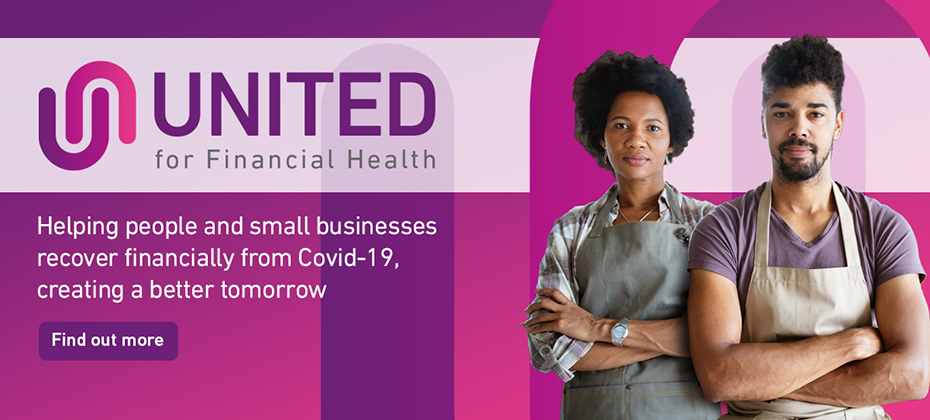
At Experian, we create a better tomorrow by powering opportunities for consumers, customers, our people and communities. We use the full range of our capabilities to drive financial education and inclusion, and one of the ways we do this is through our United for Financial Health programme. I am delighted to announce the launch of this important programme in two of EMEA’s markets today. We’re excited for the positive difference our two new partnerships will make to help vulnerable consumers financially recover from the impacts of Covid-19. In Italy, incidents of domestic violence have increased considerably during the global pandemic, with the Italian National Institute of Statistics reporting a 75% increase in calls to anti-violence helplines in 2020 alone. Further statistics show women are particularly affected by unemployment due to Covid-19, reducing victims’ financial independence and their ability to escape from situations of abuse. The increase in domestic violence since the onset of the pandemic has also been highlighted globally by the UN. To help those impacted, we intend to partner with MicroLab and Microfinanza, who support women victims of domestic violence, foreign caregivers, and young people not in employment, education or training (NEETs). Our partnership aims to help these people access credit, so they have the financial means to improve their current situation, and take steps toward creating a better tomorrow. We will collaborate to deliver financial education, and we intend to develop an app that captures open (non-traditional) financial data to help them build their credit profiles. In South Africa, unemployment stands at 32.6%. A large proportion of people in the country run or work for small to medium-size enterprises (SMEs). By helping these organisations access affordable credit so they can continue to operate through the pandemic, we believe we can have a tangible impact on people’s employment. We will partner with the National Small Business Chamber, a non-profit membership organisation that supports SMEs. Together, we will educate small business owners on their financial and credit health, empowering them to improve their personal and business credit profiles to access the funding required to maintain and grow their businesses. Combined, we estimate our partnership with our NGO partners will reach 3.8 million consumers, helping deliver on our Company’s commitment to reach 100 million people by 2024. We start work on these projects today on our path to creating a better tomorrow.
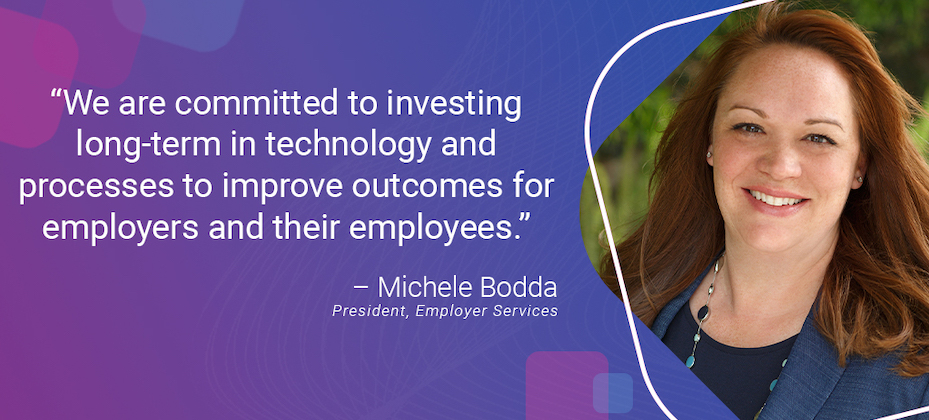
You may have recently seen the announcement of Experian’s new Employer Services business. While we have a longstanding history of serving multiple industries, we recognize some may wonder what prompted Experian to enter this space. It may even seem like a means to another end. In an effort to dispel any preconceived notions, I’d like to highlight what led us to invest in this business, how we plan to address employers most pressing pain points as employees return to work and what the industry can expect from us. The truth is our clients asked us to enter the employer services market. Employers have been seeking alternatives to legacy services. They’ve been asking to have a company of Experian’s scale and capabilities fill in the gaps, invest in innovation, and provide high-touch customer support. Essentially, our goal is to deliver on their ask and be an indispensable partner to employers across the U.S. Here are three ways we are bringing this vision to life: 1. The industry’s best and most trusted providers are now part Experian. A critical piece of our strategy is to bring together the best the industry has to offer. We have a solid track record when it comes to acquiring companies who disrupt industries with innovative solutions to difficult problems. So, we scoured the market to identify companies that would allow us to provide unmatched human capital management expertise. Through our acquisitions of Emptech, Corporate Cost Control (CCC), and Tax Credit Co. (TCC), I am confident we have assembled the best-of-the-best. Individually, each company has a trusted reputation for providing unmatched service to some of the most recognizable brands. As we come together, we are leveraging our combined capabilities to deliver secure, scalable and transparent services to even more businesses. We can assist employers across industries with streamlining complex and time-consuming Human Resources activities and support their finance team’s tax credits processes, through services including: Electronic I-9 verification management Unemployment claims management Employment and income verification fulfillment Tax credits and incentives management, including Work Opportunity Tax Credits (WOTC) Ultimately, we are helping employers turn workforce management into a competitive advantage by improving candidate and employee experiences, safeguarding employee information and maximizing the benefits of various tax credits programs. By leveraging our experts, our clients can spend more time focusing on their people. 2. Our services are backed by high-touch customer service and powered by industry-leading innovation. While we are rightfully recognized as the largest credit bureau in the country, I’ve personally seen our business grow over the past 20 years into something much more than a credit bureau. We are a global technology company and market leader in business insights and analytics, focused on empowering consumers. We invest heavily in innovation across a wide spectrum of industries, and we are committed to investing long-term in technology and processes to improve outcomes for employers and their employees. In fact, Experian has been recognized as one of the most innovative companies in the world by Forbes for several years – for our work in all of the industries we serve. At the same time, our services are delivered with the highest standards of data privacy, accuracy, security and transparency. Our clients will always know how their data is being used and how it benefits their employees. Our business continues to evolve to deliver world-class services for our clients and consumers. We’re bringing this same innovative mindset and focus to meet the evolving needs of employers. 3. We’re “All In” on Employer Services. While we recognize the employer services space was ripe for innovation long before the pandemic, the ensuing stay-at-home orders, rising unemployment, reemployment and legislation changes created a perfect storm for employers, Human Resources and finance professionals. We’re facing an entirely new set of workforce challenges today. Whether you need unparalleled unemployment claims management, tax credit expertise, verification of income and employment reliability and transparency or work eligibility certification, we’re here to bring the best Experian has to offer to help and we’re going all in. Our promise is that we will listen to our customers to understand their unique needs and invest to provide the capabilities and high-touch service tailored to best serve them. We know employers need a partner they can trust, who is focused on their business and their employee’s experience and who will bring new ideas to the table on managing a complex workforce in this ever-changing environment. We have the teams in place with deep expertise to tackle the toughest challenges. We’re thrilled to be here, and we’re committed for the long-term. You can learn more about our Employer Services business by visiting www.experian.com/employer-services.

The use of digital payments continues to trend upwards. While the pandemic pushed consumers online quickly out of necessity, it has since become a preference due to the convenience factor. As businesses transform their operations to accommodate this rapidly growing volume of digital transactions, they must factor in the additional vulnerability caused for online fraud and identity theft. At Experian we are committed to helping our clients improve the customer experience, while at the same time protecting consumer identities and information. Experian was recently acknowledged in Juniper Research’s Online Payment Fraud Deep Dive Strategy & Competition 2021-2025 as an established leader in fraud detection and prevention. Juniper Research, one of the leading global analyst firms in the mobile and digital technology sector, scored Experian high for their marketing & branding strength, service range & features, financial performance in the sector, experience in the sector, operations & global reach, partnerships, creativity & innovation, and future business prospects. View infographic with key fraud trends According to Juniper Research, “Experian continues to invest into its fraud detection and prevention solution and uses its vast array of customer data to deliver an effective set of solutions across the entire consumer journey, from onboarding, through account management/account takeover and transaction risk mitigation.” The reports highlights Experian CrossCore platform noting, “Experian leverages a combination of proprietary solutions and partner capabilities and data – integrated into its CrossCore platform – where it leverages a robust machine learning approach that takes into account these dynamic sources of data.” All of Experian’s fraud detection and prevention services are available through Experian’s CrossCore partner ecosystem, which combines advanced analytics, rich data assets, identity insights and fraud prevention capabilities. Businesses using the Experian CrossCore partner ecosystem can connect any new or existing tools and systems in one place to quickly adjust strategies based on evolving threats and business needs, which helps to improve efficiency and reduce operational costs. Learn more about the CrossCore platform here.
